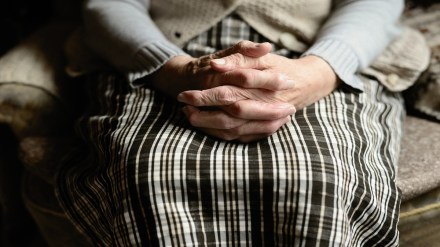Human Metapneumovirus (HMPV) poses significant risks to vulnerable populations, particularly the elderly and infants. Both groups are at heightened risk of severe respiratory complications.
According to Dr Nikhil Modi, Senior Consultant, Respiratory and Critical Care, Indraprastha Apollo Hospitals, for infants, the virus can lead to serious conditions like bronchiolitis and pneumonia, with the peak severity occurring between 6 and 12 months of age.
“Older adults, especially those over 65 or with chronic health conditions, face increased vulnerability to respiratory infections. The primary risks include potential respiratory tract infections that can quickly escalate to more serious conditions. Immunocompromised individuals, pregnant women, and those with underlying health issues are especially susceptible,” Dr. Modi told Financial Express.com.
Notably, about 5% to 16% of children may develop lower respiratory tract infections, with the first HMPV infection typically being the most severe. The virus spreads through respiratory droplets, making transmission relatively easy in close-contact settings like homes and healthcare facilities.
“Prevention strategies are crucial for these high-risk groups. Key protective measures include rigorous hand hygiene, frequent hand washing with soap and water for at least 20 seconds, avoiding crowded spaces, and maintaining distance from individuals showing respiratory symptoms. Additionally, disinfecting frequently touched surfaces, practicing respiratory etiquette, and maintaining overall immune health can significantly reduce transmission risks,” Dr. Modi said.
How to Protect Yourself and Your Family from HMPV?
Protecting yourself and your family from HMPV requires a comprehensive approach to prevention and hygiene. The virus spreads primarily through respiratory droplets and can survive on surfaces for short periods, Dr. Modi highlighted.
“Hand hygiene is the most critical defense mechanism, with experts recommending washing hands with soap and water for at least 20 seconds. Key protective strategies include practicing respiratory etiquette like covering mouth and nose when coughing or sneezing, wearing masks in crowded spaces, and maintaining social distancing during respiratory illness seasons. Disinfecting commonly touched surfaces such as doorknobs, phones, and countertops can further reduce transmission risks,” he explained.
For families with young children or elderly members, extra precautions are essential. Strengthening immune health through balanced nutrition, regular exercise, and sufficient sleep can help the body fight potential infections.
“While no specific HMPV vaccine exists, staying current with other vaccinations like influenza can help reduce overall respiratory infection risks. During outbreaks, it’s crucial to isolate when sick, avoid close contact with infected individuals, and ensure proper ventilation in indoor spaces,” he added.
